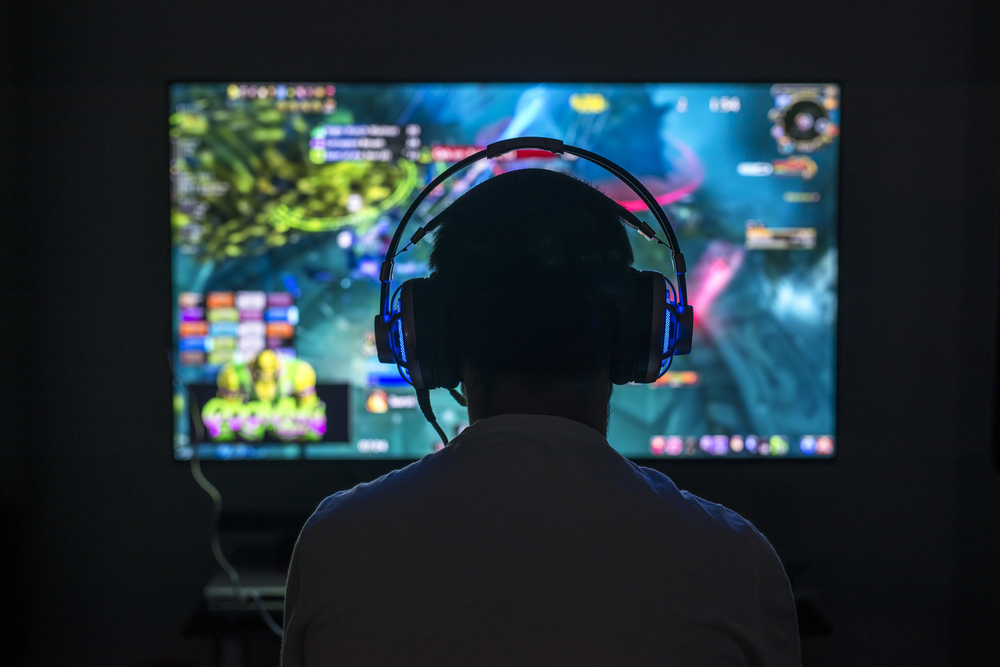
The brain is the most complex organ known to man. Through research, scientists have been able to understand the behaviour of the brain in reaction to various stimulus. They have established that many activities that human beings undertake on a daily basis have a distinct effect on the brain. One particular study focused on the effects of gaming on the complex organ. Albeit focusing on video games, the results could generally be applied to all games.
The brain secretes a chemical compound known as dopamine when a person is playing games. It does not matter whether those games are video or otherwise. Dopamine, in layman’s terms, is the happiness hormone. Each time the brain feels rewarded, it secretes this hormone. Depending on the level of “happiness,” dopamine may be released in large of small amounts. A high secretion of dopamine ultimately causes addiction. Controlled levels of dopamine, however, have been seen to have some good benefits to the human body and brain. This article will highlight some of the changes caused by games.
Improved Cognitive Functions
 Cognition, in this instant scenario, is the manner in which the brain perceives and judges information. Scientists have identified eight human cognitive functions: four have to do with perception while the other four judgment. These eight cognitive functions combined make up our distinct personalities. Unfortunately, human beings have not mastered all eight cognitive functions. Few may be more dominant than others.
Cognition, in this instant scenario, is the manner in which the brain perceives and judges information. Scientists have identified eight human cognitive functions: four have to do with perception while the other four judgment. These eight cognitive functions combined make up our distinct personalities. Unfortunately, human beings have not mastered all eight cognitive functions. Few may be more dominant than others.
Since the brain is malleable and adaptable, it is not uncommon that some activities that we carry out help the brain to learn new cognitive skills. Gaming is one of these activities. When the mind is engaged in a game, it is presented with many different scenarios that require analysis, quick thought process, and judgment. Playing games consistently trains the brain to adapt to these different situations. With time, it becomes simpler as the thought process hastens. Ultimately, the brain learns how to cope with these situations.
Scientists also say that the brain is more reactive when exposed to a variety of different situations. Playing a single game every day does not unleash this potential. However, multiple game platforms like b bets are a great way to trigger dormant cognitive functions.
Motor Functions
Motor functions are controlled by the brain. The brain controls how a person walks, breaths, waves their hands, shakes their head, and even how a person sneeze. Some games are specifically designed for one purpose. A surgeon, who also doubles in software development, made a game that uses a cartoon avatar to mimic the actions or hand movements of a surgeon during the currency of a surgery. The game was intended to train surgeons without actually knowing that they were being trained. Such an approach is particularly helpful since it builds muscle memory. In turn, a person may do something not because of any specialized training, but because the brain has already adapted to such an action.
Similarly, games can be real life simulations. A popular game is the flight simulator which creates a virtual aircraft environment where a player may train to fly a plane. The simulation is so near to the real experience such that one might be absorbed in the game they forget they are actually playing. The risks involved, being a game, are very minimal. Simulators have been used in military, aircraft, naval, and medical training.
Decision Making
As earlier mentioned, the brain perceives and judge information. Part of these process involves some form of decision making. For instance, when you see something, you will decide whether to continue looking or look away, whether to analyze that thing, or whether it is good or bad.
Now, take a game scenario, blackjack to be precise. The dealer has drawn the first hand. In your hand, you have an Ace and a 2. The other player seems fidgety, and the dealer has maintained his poker face. You are required to call a hit or to stand or split your wager. Getting a hit could get a number of cards that will ultimately result in a bust. Standing avails the possibility that the dealer might have a blackjack or slightly more points than you do. Moreover, time is quickly running out.
In this scenario, there is a lot of things you have to assess before making your next move. On the one hand, you are sure that you may win the round, on the other, you doubt that the dealer has fewer cards than you do. Well, in earnest, there is no right answer or call. It all depends on how fast you will analyze your situation and make decisions.
In essence, gaming trains a person to analyze and make decisions as fast as possible. It sharps your decision-making techniques and shortens the time required to think through difficult decisions.
Visual Enhancement
Video games often have fleeting screens or images. In a combat game, for instance, the player is supposed to spot an enemy target before their avatar is spotted. This requires high concentration and focus. Over time, it might get easier to do this. This is because your visual skills get better the more you play. Eventually, a person may build great hand-eye coordination from merely playing games.
Increased Attention Span
Gaming for long hours has been observed to increase attention span. Since games require a lot of concentration, a gamer is required to stay focused over long periods. Adaptation canvasses the rest.
In Brief
However, not everything about gaming is good. It can sometimes cause some harmful effects on your brain. Too much gaming can cause disorders such as impulse control disorder. Others include anti-social behaviour, eating disorders, and high irritability. It is advisable to moderate your gaming habits to a manageable level.


![[REVIEW] THE BOYS: DEAR BECKY #1](https://geekd-out.com/wp-content/uploads/2020/03/TheBoysBecky-01-01011-A-Robertson-150x150.jpg)

One thought on “5 Ways Gaming Changes Your Brain, According to Science”